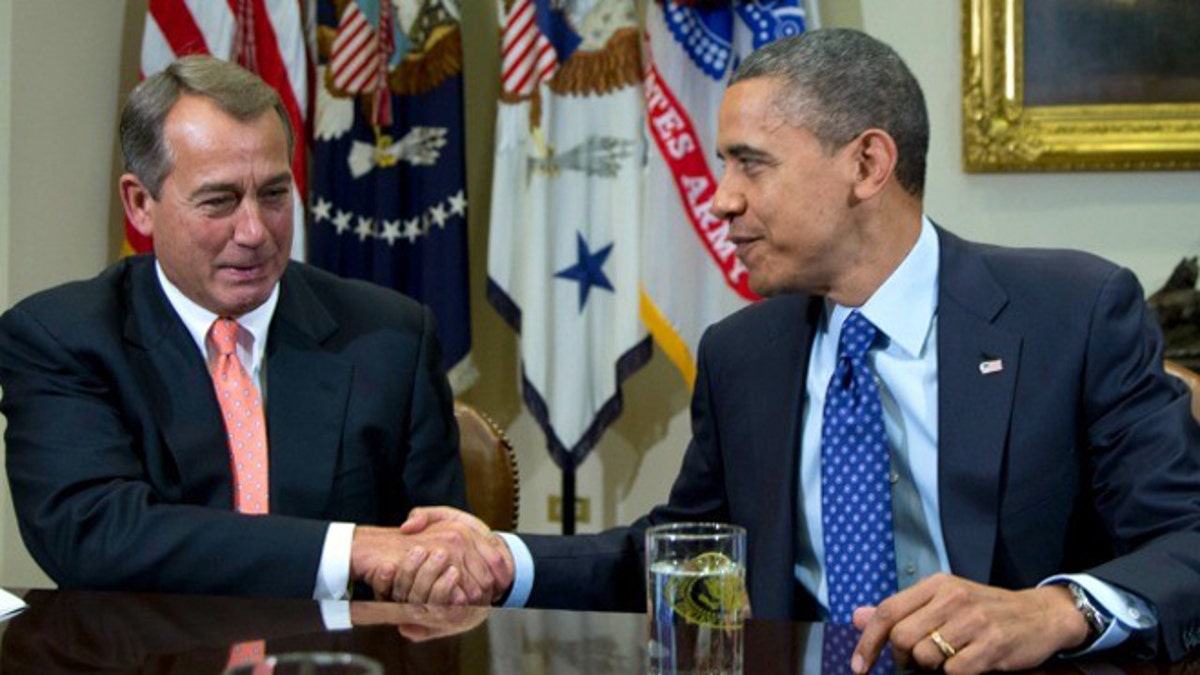
(AP Photo/Carolyn Kaster)
The present crisis facing America is deeper than the threats posed by ISIS, the debt, Russia, or even a nuclear Iran. America has faced crises in the past -- the Depression, World War II, and the Cold War, to name only a few. Yet we have always been a resilient nation—one that has confronted hardship and emerged from it stronger.
Today, people have begun to question whether or not America still has that kind of resilience. The problem is not that the threats we face are so much greater today than yesterday, or that these problems are insurmountable, but that our leaders lack the ability and willingness to deal with them. Over 70 percent of Americans believe that unless we get better leaders, the United States will decline.
It was not always this way. America’s greatest leaders have sought to shape history, not just react to it. They have confronted some of the nation’s darkest days, and led the country through them. They understood that for America to be resilient, its leaders needed two virtues: a willingness to take responsibility, and a focus on the morality of results.
American political culture is awash in the morality of intentions. Leaders talk a lot about their intentions, but too few of them are willing to take full responsibility for the results that they produce. There’s always someone else to blame when things go wrong, and it’s easy to point the finger at someone else’s motives. Doing so keeps people from asking the more important question, which is about results: what did you actually get done? What have you, as a leader, made better?
World War II was a monumental struggle, and the Cold War was a decades-long contest of arms and ideas. America emerged from both stronger, and the world emerged more free and prosperous. American leaders during World War II and the Cold War accepted responsibility for the decisions they made, understanding that those decisions would shape the course of history. Can anyone imagine General Eisenhower shirking responsibility for D-Day, Truman blaming someone else for dropping the Bomb or firing MacArthur, JFK dodging responsibility for the Bay of Pigs or the Cuban Missile Crisis, LBJ passing the buck on Civil Rights or Vietnam, Gerald Ford complaining that he was “forced” to pardon Nixon, or Reagan taking a back seat in the fight against the USSR?
People may have disapproved of how leaders handled these situations – and many did – but there was no doubt that America’s leaders accepted responsibility for these decisions and their results. This meant that while people may have deeply disapproved of particular leaders and their course of action, their overall trust in government remained high. President Truman registered the lowest approval rating of any modern President at 22% in 1952. And yet, throughout the 1950s, American confidence in government was routinely over 70%. Today, confidence in government routinely hovers around 20 percent.
Most recently, my home state of Missouri faced a serious crisis in Ferguson. Governor Jay Nixon declared a State of Emergency, but when he was asked if the buck stopped with him – a reference to President Harry Truman, who kept a sign on his desk in the White House that said, “The Buck Stops Here” -- Governor Nixon gave a meandering more-than-two-minute-long non-answer. (Listen here)
All Governor Nixon had to say – and all he should have said – was “Yes.” Instead, in the home state of ‘Give ‘em Hell Harry Truman,’ Governor Nixon’s non response was yet another example of how people lose confidence in the ability of our leaders to take responsibility and provide direction in a time of difficulty.
The most trusted institution in America today is the military. Why? Responsibility for results. In the Navy, the moment a new Captain takes charge of a ship, he or she is immediately responsible for everything that happens there. It is inconceivable that any Captain of a Navy ship would think to blame what happens on his watch on a former captain of the ship. That culture of responsibility is part of what makes the American military resilient, and part of why Americans still trust it.
One hopeful survey finding is this: over 80 percent of Americans believe that effective leaders would be capable of addressing the country’s challenges, and 88% of us believe that we have a personal responsibility to make our leaders more effective.
Our citizens know what our leaders are currently missing. It’s possible – and essential – to move beyond words to plans, beyond intentions to results, and beyond arguments to action.
We’re a resilient people, and while things may look tough at the present moment, we can still emerge stronger.








































